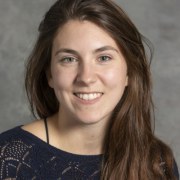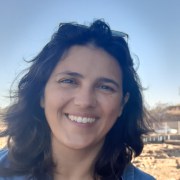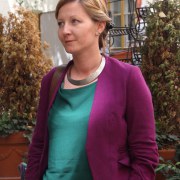Supporting environmental learning with research and practice
Science and its relationship with society have been crucial in the recognition of climate change and biodiversity loss, and remains so as we now navigate necessary personal and societal transitions. This session explores the role of the science centre, museum, school or nature reserve, in addressing the climate crisis through practice and research case studies. Together, the speakers and convenor will consider the planning, delivery and evaluation of environmental education. In particular, we will explore how different learning institutions address the ‘wicked problems’ of climate change and biodiversity loss in their unique contexts - where local populations may be more or less engaged in the issue, and hold different powers and privileges that enable or reduce personal and collective action.
What can the Ecsite community learn from each others’ experiences? How can we work within local contexts to address a global problem?
This session is part of the Biodiversity and climate crisis conference track.
Facilitator
Senior project manager Education
Session speakers
Sophie is a PhD candidate at the School of Education, Communication and Society at King’s College London alongside work in science engagement. She will be exploring how environmental education practice in non-formal spaces is translated from the intentions and plans of educators, through to learners’ perceptions and outcomes. The work aims to facilitate reflection on how intended outcomes can be better achieved, and how these might contribute to environmental changes at a societal level.
Senior Audience Advocate (Learning)
Chris is Audience Research Manager at the Science Museum Group. He will share findings from a piece of audience research commissioned to explore currently held public attitudes to global food sustainability in the UK, India and Brazil. The research explored what people know of these subjects, their response to some of the solutions and finally ways in which science communicators can support audiences to make positive change.
From Expolab, a Ciência Viva science centre, Susana will reflect on the experience of running environmental programmes in the unique living labs that Azores islands are. She will explore some key concerns such as how to navigate personal responsibility towards the surrounding ocean, when the shores are littered with plastic from all over the World? How can the focus on conservation of the native ecosystems be realised when cattle farming is one of the main economic activities?
Head of Department of programme activity
Tanja is a biologist, researcher and head of the department of programme activity at Center for the Promotion of Science (CPN) in Serbia. She will be discussing how CPN addresses pollution and sustainability in the face of a cultural disconnect from climate change in Serbia. This disconnect means that environmentally focussed programmes are uninteresting for attendees and so CPN adopts creative engagement with the topic through fore-fronting other more ‘popular’ issues.





